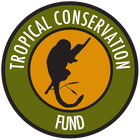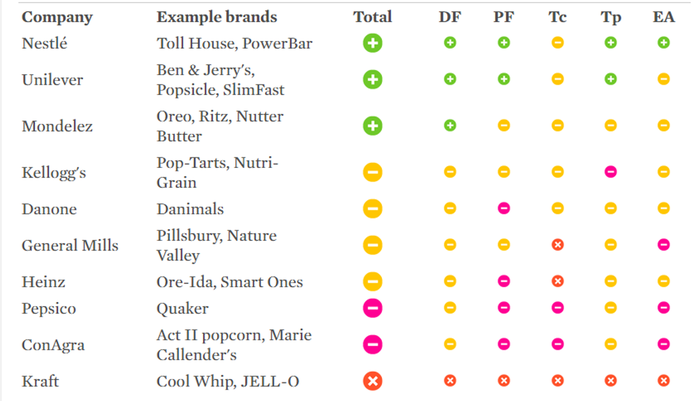Kraft Palm Oil Scorecard: Ranking America’s Biggest Brands on Their Commitment to Deforestation-Free Palm Oil
There seems to be some discrepancies in how well Kraft is doing on the palm oil front. Greenpeace has recently called out Kellogg’s, Kraft Heinz, and others for failing to disclose if their palm oil is destroying rainforests. "With less than two years to go until 2020, deforestation to produce commodities such as palm oil shows no sign of slowing down. Corporate commitments and policies have proliferated, but companies have largely failed to implement them. As a result, consumer brands, including those with ‘no deforestation, no peat, no exploitation’ (NDPE) policies, still use palm oil from producers that destroy rainforests, drain carbon-rich peatland and violate the human rights of workers and local communities – making their customers complicit in forest destruction, climate change and human rights abuses. We called on them to disclose publicly the mills that produced their palm oil, and the names of the producer groups that controlled those mills. If disclosed, this information would show whether brands had forest destroyers in their supply chains. Eight CGF brands – Colgate-Palmolive, General Mills, Mars, Mondelēz, Nestlé, Procter & Gamble (P&G), Reckitt Benckiser and Unilever – were prepared to hold themselves accountable prior to publication of this report. The others – Ferrero, Hershey, Kellogg’s, Kraft Heinz, Johnson & Johnson, PepsiCo, PZ Cussons and Smucker’s – refused to reveal who produced their palm oil, thereby concealing the extent of their complicity in rainforest destruction."
Kraft Heinz Releases New Palm Oil Policy, But Some NGOs Are Skeptical
Kraft Heinz, which includes brands such as Planters, Oscar Meyer, Velveeta and Jell-O, also said it would work with its palm oil suppliers to improve traceability, as well as stamp out child labor within its supply chain. “Kraft Heinz’s new palm oil policy falls far short of giving customers the satisfaction of knowing they are buying macaroni and cheese or ketchup that was produced without deforestation or human rights abuse. Instead of a clear plan for sourcing 100 percent deforestation-free and exploitation-free palm oil, like its competitors Kellogg’s and Nestle did years ago, Kraft Heinz is taking a baby step of buying palm oil certified by the Roundtable on Sustainable Palm Oil.”
"Kraft Heinz is partly owned by 3G Capital, a Brazilian investment firm that is also owns a stake in Burger King, a company Mighty has accused of driving deforestation in South America. Burger King, like Kraft Heinz, has been criticized in the past for its lack of transparency in discussing its palm oil sourcing. Though that company did make what insiders call a significant step in its animal welfare policies this week."
Kraft Heinz, which includes brands such as Planters, Oscar Meyer, Velveeta and Jell-O, also said it would work with its palm oil suppliers to improve traceability, as well as stamp out child labor within its supply chain. “Kraft Heinz’s new palm oil policy falls far short of giving customers the satisfaction of knowing they are buying macaroni and cheese or ketchup that was produced without deforestation or human rights abuse. Instead of a clear plan for sourcing 100 percent deforestation-free and exploitation-free palm oil, like its competitors Kellogg’s and Nestle did years ago, Kraft Heinz is taking a baby step of buying palm oil certified by the Roundtable on Sustainable Palm Oil.”
"Kraft Heinz is partly owned by 3G Capital, a Brazilian investment firm that is also owns a stake in Burger King, a company Mighty has accused of driving deforestation in South America. Burger King, like Kraft Heinz, has been criticized in the past for its lack of transparency in discussing its palm oil sourcing. Though that company did make what insiders call a significant step in its animal welfare policies this week."


